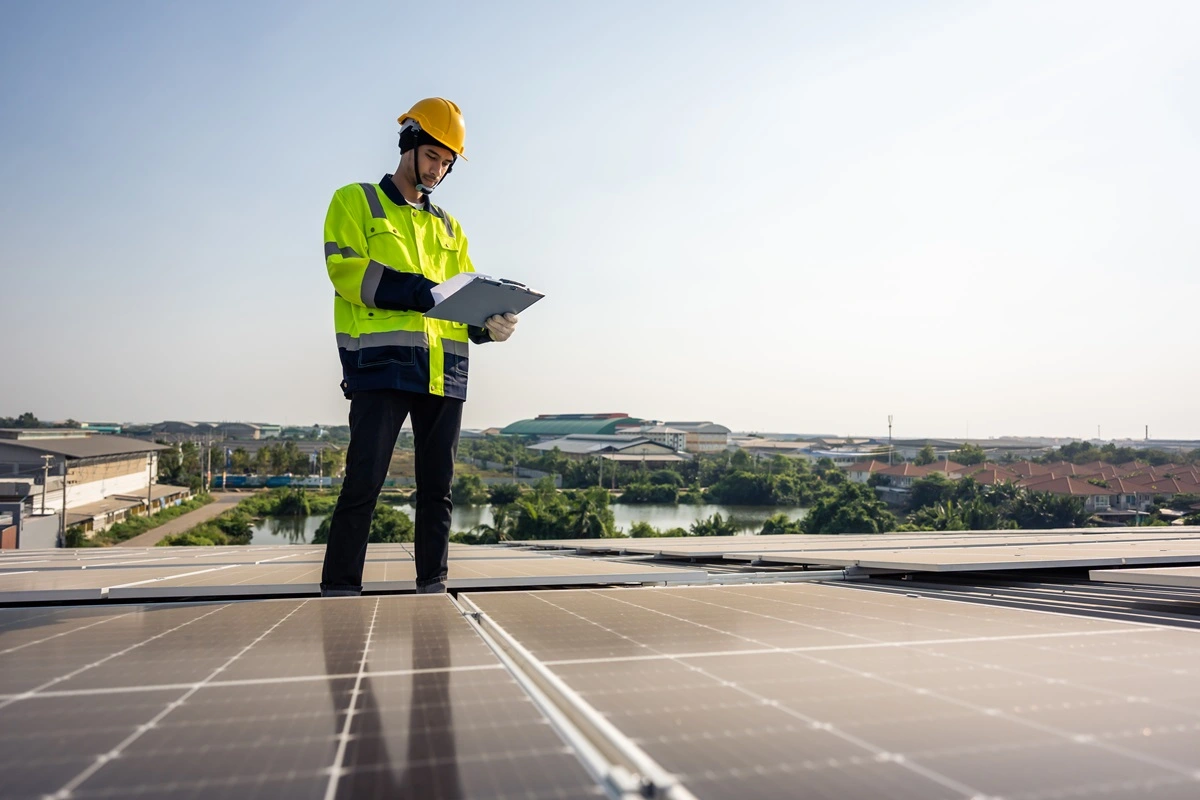
Roof Projects
Solar energy roof projects aim to generate electricity from solar energy by installing solar panels on the roofs of buildings. These projects are an excellent way to reduce energy costs, protect the environment and achieve energy independence.
Installation Process
Preliminary Evaluation and Feasibility Study:
- Roof Inspection: Whether the roof is suitable for solar energy, its direction, slope and shading status are evaluated.
- Energy Need Analysis: The required system capacity is determined by analyzing the energy consumption of building owners.
System Design:
- Panel Selection: Solar panels are selected according to the required capacity.
- Inverter and Other Components: Inverters and other system components that convert the produced DC electricity into AC electricity are determined.
- Mounting System: The system where the panels will be mounted on the roof is designed.
Permissions and Approvals:
- Local Government Permits: Necessary permits are obtained from municipalities.
- Electricity Distribution Company Approval: Approval is obtained from the distribution company for the systems to be connected to the grid.
Setup:
- Mounting: Solar panels are mounted on the roof according to the mounting system.
- Electrical Connections: Panels, inverter and other electrical components are connected.
Testing and Commissioning:
- System Test: The installed system is tested to check whether it works properly.
- Commissioning: The system is made operational and energy production begins.
Benefits
Saving on Electricity Bill:
- Generating electricity using solar energy reduces the electricity drawn from the grid and provides significant savings on bills.
Environmental Benefit:
- Solar energy is a clean and renewable energy source, unlike fossil fuels. It protects the environment by reducing carbon emissions.
Energy Independence:
- By producing your own electricity, you achieve energy independence and are not affected by fluctuations in energy prices.
Government incentives:
- There are various government incentives and supports for solar energy projects in Turkey. These incentives can reduce installation costs.
Real Estate Value Increase:
- Buildings with solar energy systems installed can be more attractive to potential buyers and increase building value.
Low Maintenance Requirement:
- Solar panels are generally long-lasting and low maintenance. Efficiency can be maintained with regular cleaning and periodic checks.
Sample Projects
Residential Roof SPP:
- Small-scale solar energy systems installed on the roofs of individual homes. Homeowners reduce energy costs by generating their own electricity.
Solar Power Plants for Commercial Buildings:
- Systems installed on the roofs of commercial buildings such as shopping malls, hotels and office buildings. These buildings consume large amounts of electricity and save money with solar energy.
Solar Power Plants for Industrial Facilities:
- Large-scale systems installed on the roofs of buildings with large electricity consumption, such as factories and industrial facilities. These facilities can significantly reduce energy costs through solar power.
Legal Regulations and Incentives
In Turkey and many parts of the world, there are various legal regulations and supports to encourage solar energy projects. These arrangements may include incentives such as tax deductions, grant programs and low-interest loans.
Solar roof projects provide great benefits both economically and environmentally. With their advantages such as reducing energy costs, protecting the environment and increasing energy independence, these projects are an important part of the sustainable energy solutions of the future.
